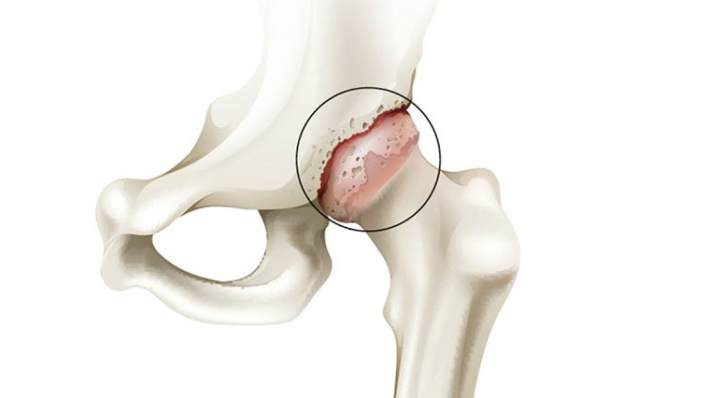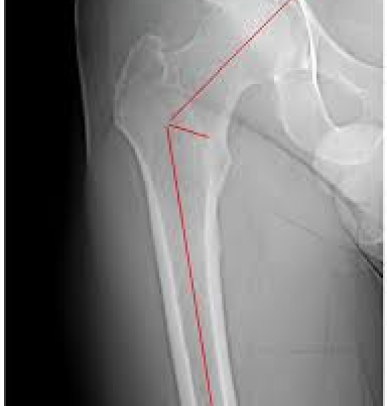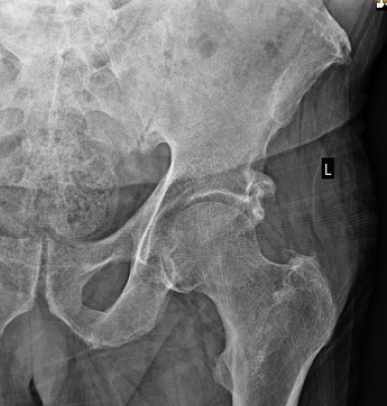Hip Osteoarthritis

Hip Replacement Surgery Dubai – Relief from Hip Pain
Hip Osteoarthritis
Hip Replacement Surgery is a transformative treatment option for patients suffering from hip osteoarthritis, a condition marked by progressive joint degeneration leading to pain, stiffness, and restricted mobility.
Tarabichi Joint Care offers state-of-the-art hip replacement in Dubai surgery to restore joint function and improve patients’ quality of life. For those experiencing severe joint pain or joint stiffness, this procedure can offer long-lasting relief and a return to active living.
Anatomy of the Hip Joint
The hip joint is one of the biggest and most vital joints in the human body, operating as a ball-and-socket structure that allows a wide range of motion. It consists of the rounded head of the thigh bone (femur) that fits into the socket of the pelvic bone, cushioned by a layer of smooth cartilage that enables friction-free movement.
With hip osteoarthritis, this protective cartilage gradually erodes, resulting in bone-on-bone contact, which causes pain, inflammation, and reduced mobility. Over a period of time, the joint can become increasingly stiff, limiting motion and impacting daily activities.
Common Causes of Osteoarthritis of the Hip
There are several factors that contribute to hip osteoarthritis, making it essential for patients to understand potential risk factors to manage or prevent progression:
- Aging: Natural wear and tear on the hip joint over the years is a leading cause, as cartilage naturally degrades with age.
- Genetics: Genetic predisposition plays a significant role in a person’s likelihood of developing osteoarthritis, particularly in weight-bearing joints like the hip.
- Old Injuries: Injuries such as fractures or dislocations can contribute to early onset of hip osteoarthritis by destabilizing the joint.
- Obesity: Extra weight increases pressure on the hip joint, accelerating cartilage breakdown and worsening symptoms over time.
Recognizing these causes of osteoarthritis of hip allows patients to work closely with specialists to modify certain risk factors and explore effective treatment options.
Types of Hip Osteoarthritis
There are two main types of hip osteoarthritis, each arising from different underlying factors:

Primary Osteoarthritis
Often attributed to the natural aging process, this type of osteoarthritis primarily affects older adults due to general cartilage wear and tear.

Secondary Osteoarthritis
This type is triggered by specific causes, such as congenital abnormalities, injuries, or diseases that affect joint stability and health, leading to early degeneration of the hip cartilage.
When is Hip Replacement Surgery Recommended?
- Persistent Pain: Pain that continues to interfere with everyday activities despite medication, physical therapy, or lifestyle changes.
- Loss of Mobility: Significant difficulty moving the hip joint, causing issues with sitting, standing, or even walking short distances.
- Severe Joint Stiffness: Marked stiffness that limits flexibility, even during simple daily movements.
If hip osteoarthritis has progressed to this stage, hip replacement surgery offers a durable solution to restore movement, relieve pain and improve quality of life.
Who is Eligible for Hip Replacement Surgery?
- Have advanced hip osteoarthritis that limits routine activities.
- Experience constant pain that remains unresponsive to medications or physical therapy.
- Are in overall good health, able to withstand surgery and the recovery process.
Deciding to have Hip Replacement Surgery
Consult Tarabichi Joint Care for Expert Advice
Don’t let hip osteoarthritis restrict your lifestyle. With advanced hip replacement surgery in Dubai available at Tarabichi Joint Care, you can regain mobility and live pain-free.
Book an appointment today to take the first step towards lasting relief and improved joint health with our team of specialists.
FAQs about Hip Replacement Surgery in Dubai
Hip replacement surgery involves removing the damaged or diseased parts of the hip joint and replacing them with artificial components made of metal, ceramic, or high-grade plastic. This artificial joint replicates natural hip movement, reducing pain and restoring flexibility. Surgery is performed under anesthesia, with patients typically staying in the hospital for a few days to monitor initial recovery.
While hip replacement surgery has a high success rate, there are some risks to consider, including infection, blood clots, and the possibility of implant dislocation. To minimize these risks, Tarabichi Joint Care adheres to strict safety protocols and offers comprehensive post-operative care, ensuring a smooth recovery process.
Before scheduling hip replacement surgery in Dubai, patients should prepare:
- Complete Medical History: Documented details of past surgeries, medical conditions, and family medical history.
- List of Current Medications: A comprehensive list of medications, including supplements and vitamins.
- Insurance Information: Insurance documentation to confirm coverage and clarify any out-of-pocket costs.
- Health Assessment: Completion of pre-surgical tests like blood work, X-rays, or an ECG to ensure the patient’s readiness for surgery.
